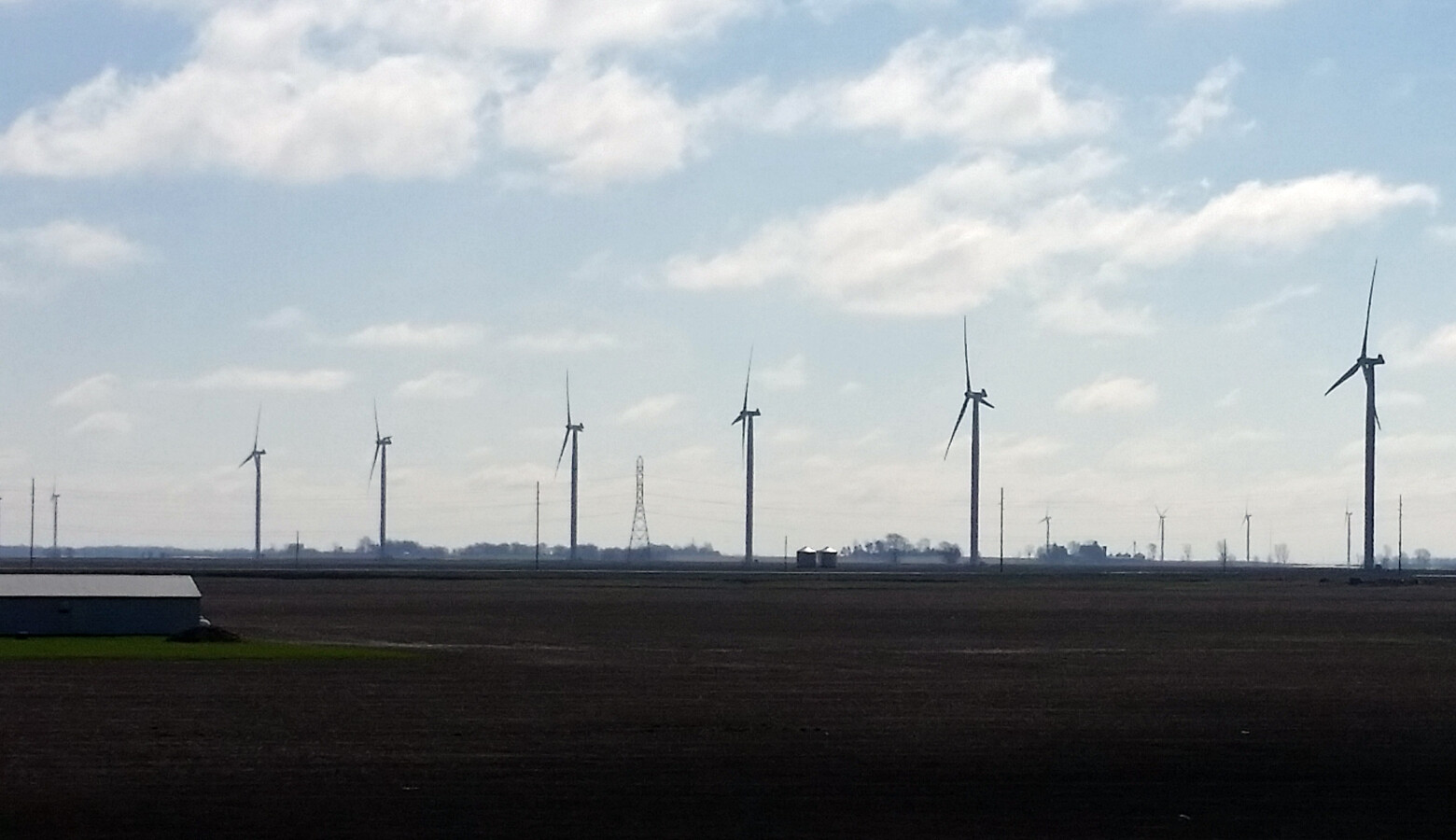Bill Would Create Guidelines For Wind And Solar Farms, Override Stricter Local Laws

Lawmakers have proposed state guidelines for wind and solar farms — like how far they can be from neighboring property owners. Under a new House bill, local governments wouldn’t be able to make ordinances stricter than those guidelines.
Renewable energy companies said all of the different local ordinances in the state have made it difficult to build wind and solar projects in Indiana — especially for something like a wind farm that can span multiple counties.
The bill’s author, Rep. Ed Soliday (R-Valparaiso), said there’s a market for renewable energy and Indiana could lose that revenue to other states willing to provide it.
“Our 22 largest manufacturers — they all want renewable energy and they’re going to get it. They’re going to get it either through buying it from other folks and paying the transmission costs or we’re going to generate some of it.” he said.
Supporters of the bill said wind and solar farms attract new businesses and provide a cleaner source of power. Soliday said solar and wind projects can also help counties regain some of the tax revenue that will be lost as coal plants shut down.
READ MORE: Purdue Study Looks At County Attitudes Toward Wind Farms
Henry County Councilor Betsy Mills said she’s not against clean energy, but she is against the state infringing upon the rights of local governments to decide what’s best for their communities.
“Why does this bill prioritize the needs of industry and not the voice of the people? Why would we injure the local democratic process to facilitate the growth of a specific industry?”
READ MORE: How Do I Follow Indiana’s Legislative Session? Here’s Your Guide To Demystify The Process
Join the conversation and sign up for the Indiana Two-Way. Text “Indiana” to 73224. Your comments and questions in response to our weekly text help us find the answers you need on COVID-19 and other statewide issues.
Counties would still be able to deny projects — though renewable energy companies could appeal that decision with the state.
The Hoosier Environmental Council is also concerned that the bill would override local ordinances that require pollinator habitats in or around solar farms.
“What is grown underneath these solar farms matters a lot to Indiana in terms of soil and water conservation, pollination of nearby fruits and vegetables, stormwater control, creation of landscapes that beautify our rural areas, and attraction of songbirds, bees, and other pollinators (all of which have faced considerable declines in population over the last 50-60 years),” said Jesse Kharbanda, HEC executive director in an email statement. “We appreciate our ongoing engagement with key lawmakers involved in drafting HB 1381 to make sure that Indiana law continues to empower our communities to maximize the community-wide benefits that solar farms can provide.”
The bill passed out of committee on Wednesday and now moves to the full House for consideration.
Contact reporter Rebecca at rthiele@iu.edu or follow her on Twitter at @beckythiele.
Indiana Environmental reporting is supported by the Environmental Resilience Institute, an Indiana University Grand Challenge project developing Indiana-specific projections and informed responses to problems of environmental change.

